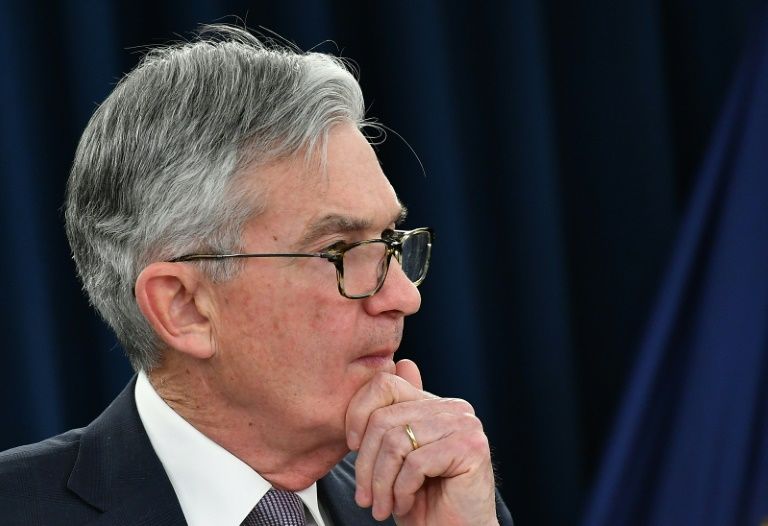Fed ‘closely monitoring’ global risks from coronavirus: Powell
Federal Reserve Board Chairman Jerome Powell told Congress a “more sustainable” federal budget would help the US economy (MANDEL NGAN)
Washington (AFP) – The US central bank is keeping watch for any impact from the virus outbreak in China that could spread beyond its borders, Federal Reserve Chairman Jerome Powell said Tuesday.
With the death toll now surpassing 1,000, transportation has been cut off and businesses shuttered, which can delay shipments of key parts to foreign manufacturers.
The Fed is “closely monitoring the emergence of the coronavirus, which could lead to disruptions in China that spill over to the rest of the global economy,” Powell said in testimony to Congress.
And on the day after President Donald Trump presented his $4.8 trillion budget proposal to Congress that has large deficits continuing for at least 15 years, Powell again argued for a “more sustainable budget.”
In his semi-annual appearance before the House Financial Services Committee to present a report on monetary policy, Powell was fairly upbeat about the US economy, citing solid job gains and continued growth.
The Fed chief renewed his argument that officials who control the government’s purse strings have a role to play in supporting the economy as well as central bankers, especially in the event of another downturn.
With the key US lending rate so low — 1.5-1.75 percent — the Fed will have little room to maneuver, which means “it would be important for fiscal policy to help support the economy if it weakens.”
“Putting the federal budget on a sustainable path when the economy is strong would help ensure that policymakers have the space to use fiscal policy to assist in stabilizing the economy during a downturn,” he said in prepared remarks.
– Risks remain –
“A more sustainable federal budget could also support the economy’s growth over the long term.”
The US budget deficit is expected to breach $1 trillion this year.
Trump frequently has berated the Fed and attacked Powell personally, calling him “clueless” and demanding lower interest rates to supercharge the economy.
In fact, the administration’s budget projects the economy will accelerate with growth of 3.0 percent for several years, something economists say is unrealistic and history shows is improbable, especially after more than a decade of growth.
However, Powell repeated the Fed’s stance that current monetary policy “will likely remain appropriate” and only change if “developments emerge that cause a material reassessment” of the outlook for the economy.
In 2019, “sluggish growth abroad and trade developments” — like Trump’s conflict with China that ratcheted up tariffs on hundreds of billions of dollars in products — “weighed on activity at the nation’s factories,” Powell said.
While US consumer spending, including investments in housing, “remain solid,” he noted that “business investment and exports were weak” in the second half of last year.
That uncertainty about global and domestic growth prompted the Fed to lower the benchmark lending rate three times last year to help shore up the economy now in a record 11th year of growth.
But in January Trump reached a truce with China, which stopped the escalation but kept most tariffs in place, and also signed a revised continental free trade pact with Canada and Mexico.
“Some of the uncertainties around trade have diminished recently,” Powell said, “but risks to the outlook remain.”
Disclaimer: Validity of the above story is for 7 Days from original date of publishing. Source: AFP.


